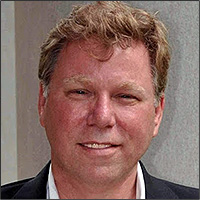Dr. Gregory Barz
// Author & ProfessorDR. GREGORY BARZ is an author and Professor of Ethnousicology, Anthropology, and Religion at Vanderbilt University in Nashville, Tennessee. His book “Shadows In The Field: New Perspectives For Fieldwork In Ethnomusicology” (1996) is available from Oxford University Press, “Performing Religion: Negotiating Past And Present In Kwaya Music Of Tanzania” (2003) is available from Rodopi, “Music In East Africa: Experiencing Music, Expressing Culture [CD Included]” (2004) is also available from Oxford, “Singing For Life: HIV/AIDS And Music In Uganda” (2005), is available from Routledge. His Smithsonian Folkways CD, “Singing For Life: Songs Of Hope, Healing, And HIV/AIDS In Uganda” (2005) was nominated for a 2008 Grammy Award in the “Best Traditional World Music” category.
Photo: Gregory Barz / Vanderbilt.edu
Interview:
At the risk of sounding cantankerous or attempting to reject the question, “what do we believe is the spiritual significance of music?”, I suggest that in my experience there is nothing inherently or innately spiritual about any form of music that is labeled as “spiritual”. One of the most profound religious experiences of any large or small, collective or intimate community is to create, define, and prescribe the expressive culture that accompanies ritual or religious performances, and then to re-perform those performances on a daily, weekly, or annual basis. In my experiences with the performances of different religions in different parts of the world, it has always been the religious communities themselves that produce and receive that which we on the outside frequently identify and label as “sacred” or “spiritual”. This observation does not deny the existence of received musical songs, texts, or melodies either from spirits or from ancestors. Rather it reinserts the collective agency of communities of religion as they contribute to the assertion of their unique spiritual identity. One community’s “spiritual” music is frequently another’s “popular” or “secular” music. This is perhaps the beauty of the spiritual: the ability of we as individuals or collectively in community to define and embrace that which we need to be spiritual.
“One community’s “spiritual” music is frequently another’s “popular” or “secular” music.”
– Dr. Gregory Barz, author of “Music In East Africa: Experiencing Music, Expressing Culture”


